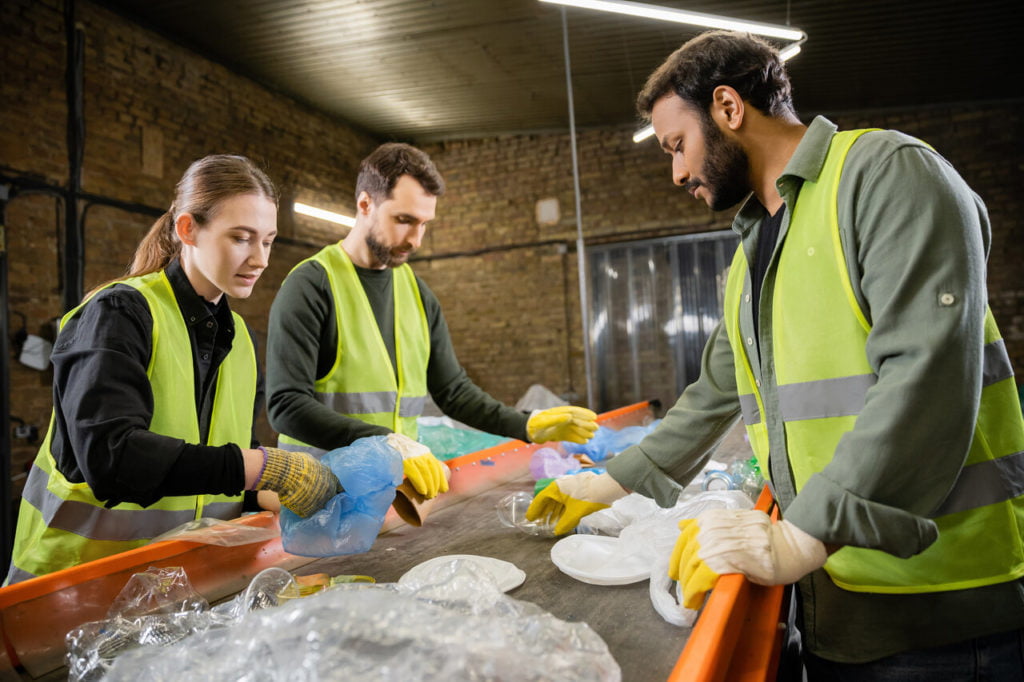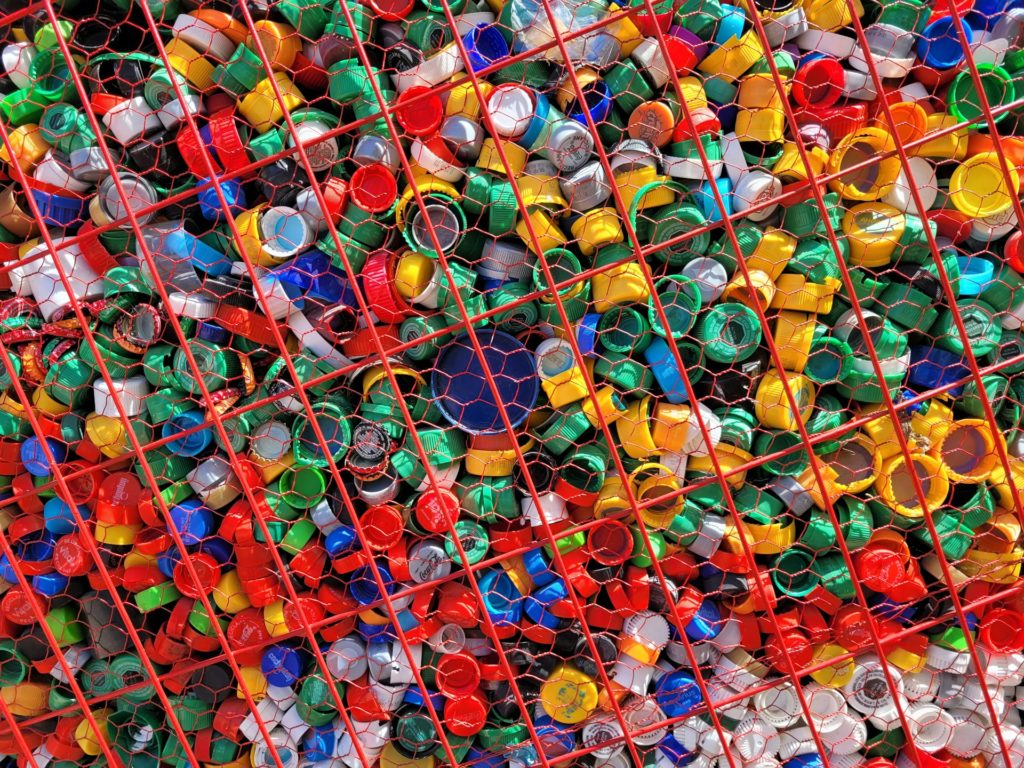The automotive industry relies heavily on efficient logistics and supply chain management to move parts and materials throughout the production process. Pallets are an essential component of this process, providing a convenient and standardised solution for transporting products. Traditionally, wooden pallets have been the go-to choice in the industry; however, their widespread usage comes with a range of environmental challenges, including deforestation, energy-intensive production, and disposal issues.
As the automotive industry seeks to reduce its environmental impact and incorporate sustainable practices into its operation, moving away from wooden pallets and instead utilising recycled plastic pallets in collaboration with plastic reprocessing companies is gaining traction. Pulse Plastics, an innovative UK-based independent specialist plastic solution provider, offers closed-loop plastic recycling solutions that can help automotive companies embrace these eco-friendly alternatives, providing numerous benefits for both the environment and industry operations.
This blog will explore the advantages of using recycled plastic pallets in the automotive industry and how Pulse Plastics’ plastic reprocessing services can facilitate the transition towards a more sustainable, closed-loop system. We will discuss the environmental benefits associated with plastic pallets, explore their operational advantages, and outline how Pulse Plastics can support automotive companies looking to adopt this green solution.
Our discussion will begin with an overview of the environmental impact of wooden pallets in the automotive industry, detailing the issues linked to their production, use, and disposal. We will contrast this with the numerous environmental benefits of recycled plastic pallets, highlighting resource conservation, decreased emissions, and waste reduction.
Subsequently, we will delve into the operational advantages of using recycled plastic pallets in the automotive sector. This will encompass their durability, hygiene, and customizability, among other positive attributes that have the potential to streamline supply chain operations and promote industry efficiency.
Finally, we will showcase how Pulse Plastics’ closed-loop plastic reprocessing services can support automotive companies looking to transition to using recycled plastic pallets. By partnering with Pulse Plastics, manufacturers can access a reliable supply of high-quality recycled plastic materials, contributing to a more sustainable and environmentally conscious industry.
Join us in exploring the potential of recycled plastic pallets in the automotive industry and discover how Pulse Plastics’ expertise in plastic reprocessing can help your business move towards a more sustainable, closed-loop system.
1. The Environmental Impact of Wooden Pallets in the Automotive Industry
Wooden pallets, while traditionally used across the automotive industry, pose numerous environmental challenges. Deforestation remains a significant issue, with vast areas of forest being cleared to meet the growing demand for pallet production. Additionally, the manufacturing process of wooden pallets is energy-intensive and involves the use of chemical preservatives, further contributing to greenhouse gas emissions. Disposing of damaged or unusable wooden pallets often results in landfill waste or air pollution from incineration, exacerbating the industry’s negative environmental impact.
2. The Environmental Benefits of Recycled Plastic Pallets
In contrast, recycled plastic pallets provide a sustainable and environmentally friendly alternative to their wooden counterparts. Key benefits of using recycled plastic pallets include:
– Resource conservation: By utilising plastic waste through reprocessing, manufacturers can reduce the consumption of virgin resources and help prevent plastic waste from ending up in landfills or polluting oceans.
– Decreased emissions: Plastic reprocessing requires less energy compared to the production of new plastic or wooden pallets, resulting in lower greenhouse gas emissions. Additionally, plastic pallets have a longer lifespan than wooden ones, further reducing the frequency of pallet production and associated emissions.
– Waste reduction: The use of recycled plastic pallets promotes a closed-loop system, allowing damaged or worn-out pallets to be reprocessed into new ones. This approach minimises waste generation and supports a circular economy model in the automotive industry.
3. Operational Advantages of Recycled Plastic Pallets
Beyond the environmental benefits, recycled plastic pallets offer a range of operational advantages that can help automotive companies streamline their logistical processes, including:
– Durability: Plastic pallets are less prone to damage from wear and tear compared to wooden pallets, offering a longer lifespan and reducing the need for frequent replacements.
– Hygiene: Unlike wood, which is porous and can harbour bacteria and pests, plastic pallets are easily cleaned and impervious to infestations, ensuring a safer and more hygienic working environment.
– Customizability: Recycled plastic pallets can be tailored to meet specific requirements, such as size, weight capacity, and design. This flexibility enables manufacturers to optimise their logistics and adapt pallets for specialised applications.
– Reduced cross-border complications: Plastic pallets are exempt from many international phytosanitary regulations that apply to wooden pallets, simplifying international trade and reducing the risk of pest contamination.
4. Embracing Closed-Loop Plastic Reprocessing with Pulse Plastics
Pulse Plastics is committed to supporting the automotive industry in its transition towards adopting recycled plastic pallets by providing closed-loop plastic reprocessing solutions. By partnering with Pulse Plastics, automotive manufacturers can access a reliable supply of high-quality recycled plastic materials, facilitating the integration of plastic pallets into their operations while promoting an environmentally friendly and sustainable industry model.
Pulse Plastics’ services extend beyond plastic pallet provision and encompass a comprehensive closed-loop recycling system capable of taking scrap or damaged pallets from the automotive industry, reprocessing them, and transforming them into new pallets or other plastic products. This circular approach not only reduces waste and emissions but also supports the smooth functioning of automotive supply chains and provides cost savings for manufacturers.
Conclusion
The adoption of recycled plastic pallets in the automotive industry presents an opportunity for manufacturers to reduce their environmental impact and move towards a more sustainable operations model. By incorporating these eco-friendly alternatives and partnering with specialist plastic solution providers like Pulse Plastics, automotive companies can enjoy both environmental benefits, including resource conservation and decreased emissions, as well as operational advantages, such as durability, customizability, and improved hygiene.
With a growing global awareness of the importance of sustainability and the need to reduce our carbon footprint, the adoption of recycled plastic pallets and closed-loop plastic reprocessing services like those provided by Pulse Plastics is a necessary step on the path to a greener and more eco-conscious automotive industry. Together, we can champion sustainable practices and contribute to a cleaner, more environmentally responsible future for generations to come.


